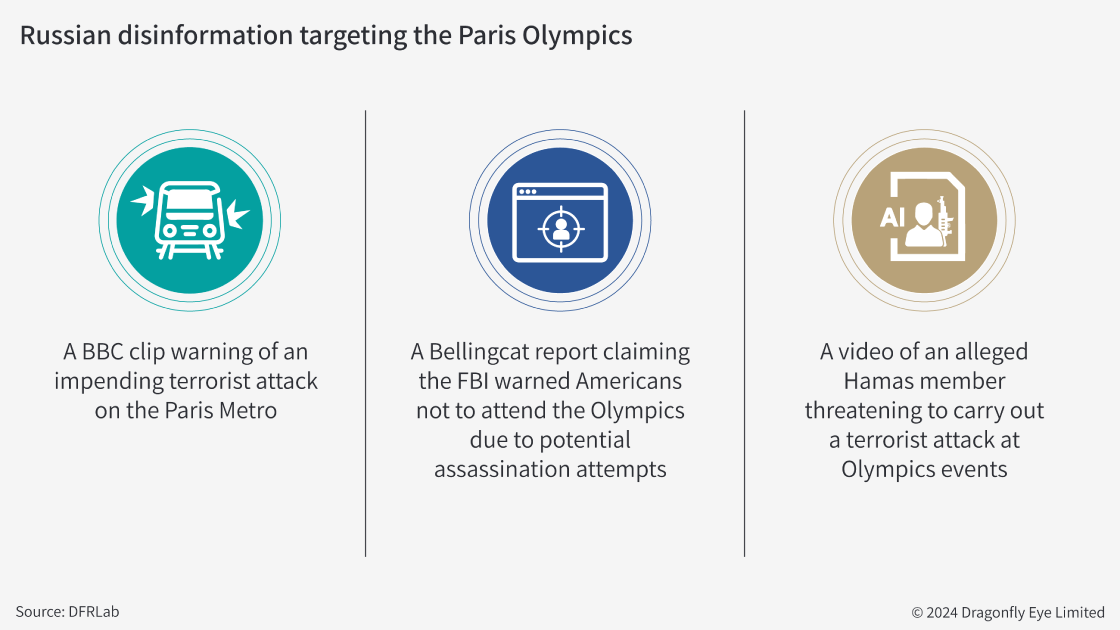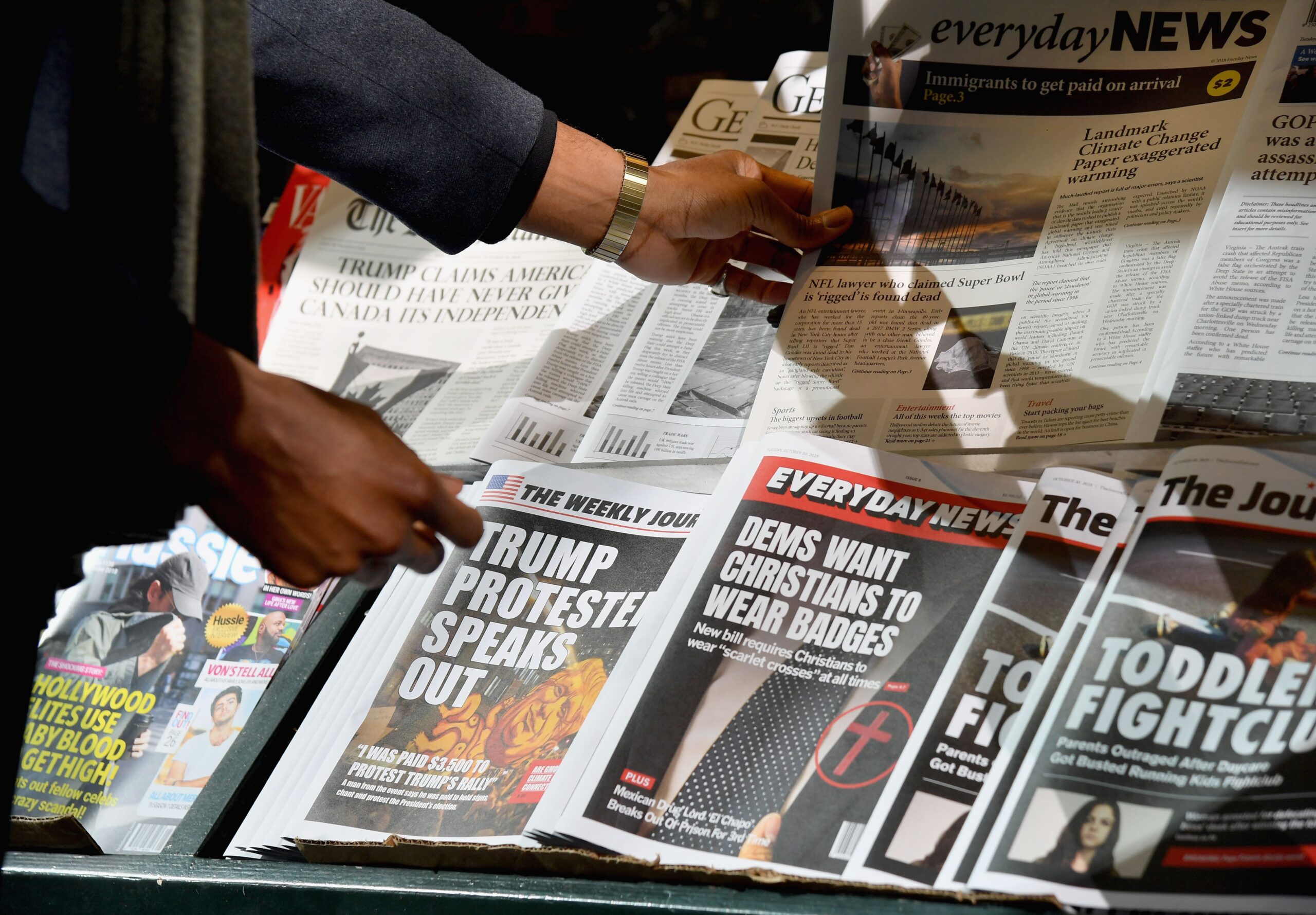Right-wing extremists are likely to try to carry out acts of violence around the November general elections, and potentially inauguration day in 2025
This assessment was issued to clients of Dragonfly’s Security Intelligence & Analysis Service (SIAS) on 16 August 2024.
- Based on its information operations in 2020, we anticipate that Russia will use these campaigns in the coming months to enhance Republican candidate Donald Trump’s chances of winning
- Disinformation networks will probably seek to encourage some isolated hate crimes but widespread anti-immigrant riots before the vote are unlikely
Hostile foreign states are highly likely to conduct disinformation campaigns leading up to the US general elections on 5 November. Russia would be the primary state actor doing this; multiple statements and reports from US government agencies and international press detail how Russia has tried to undermine public support for Ukraine through disinformation. And based on its recent operations in other Western countries, Russia appears particularly intent on amplifying anti-immigrant sentiment, inciting public fear of terrorist attacks and encouraging doubt about integrity of democratic processes.
Several clients have asked about the possible consequences of disinformation in the US ahead of the election. The US government and most major social media platforms seem aware and capable of tackling some disinformation, and major disruption to the electoral process is highly unlikely. We doubt that widespread anti-immigrant riots fuelled by mis- and disinformation resembling those which took place in the UK in recent weeks will occur ahead of the US elections. But foreign influence campaigns will probably encourage some isolated hate crimes and ‘lone actor’ attacks, in our assessment.
Foreign disinformation encouraging violence is highly likely
Hostile foreign states, especially Russia, are highly likely to amplify existing divisions in the US through online disinformation. This is based on recent reports and statements from large tech companies and the US Cybersecurity and Infrastructure Security Agency (CISA). As during the previous presidential election, Russia seems intent on boosting support for Trump, who it perceives as favourable to its interests, by amplifying anti-immigrant sentiment. Russian bots probably sought to amplify anti-immigrant sentiment during the recent far-right riots in the UK.
Disinformation by foreign states around the US elections will probably sustain an already-high risk of hate crimes until the end of the year. A 2023 report by a coalition of civil rights groups found that these increased in the weeks preceding the past four presidential elections, with white supremacists behind most cases. In particular, Russian networks are likely to try to stoke fears about illegal migrants ‘stealing’ the election. This is based on a spike in the number of posts on popular US far-right Telegram channels we have observed in recent weeks, warning about mass voter fraud in ‘ethnic’ communities.
We assess that Russian disinformation is likely to encourage hate crimes, online harassment (e.g. threats, doxxing) and/or phishing and swatting attempts against people with the following profiles:
- Individuals and organisations linked to helping immigrants or refugees, such as law firms or NGOs. We have observed in recent weeks UK right-wing extremists publishing the personal details of immigration lawyers online and issuing death threats against them
- High-profile Jewish individuals. According to the Anti-Defamation League, a US advocacy group, the number of antisemitic hate crimes surged after the 7 October attack in Israel last year. Antisemitism remains very prevalent in far-right forums, often in relation to conspiracy theories
Any attacks against such groups are likely to be one-off incidents, perpetrated by individuals rather than part of a coordinated campaign nationally. See B-USA-03-04-24 for our assessment of the terrorism threat around the polls.
Widespread anti-immigrant riots unlikely
We doubt foreign disinformation in the US will lead to widespread far-right riots and counter protests, like those that occurred in the UK earlier this month. Based on our monitoring of extremist forums, the US far-right activists celebrated the UK riots. But they did not appear intent on organising similar violent protests. In our assessment, widespread arrests following the storming of the US Capitol on January 6 seem to be discouraging extremists from engaging in such activity.
That said, disinformation concerning immigration or other controversial social issues would probably lead to small numbers of people, including extremists, staging demonstrations. Illegal immigrants are heavily implicated in right-wing election interference theories, and we anticipate that disinformation networks will create and share fake news stories about them. In our view this will intensify immediately before election day, particularly if opinion polls indicate that Democratic candidate Kamala Harris is projected to win. Any such protests would probably be attended by a few hundred people at most, based on recent events.
US financial institutions plausible targets for disinformation
There is a more than even chance that disinformation from foreign governments will encourage online harassment of high-profile executives in the coming months. We anticipate that those in the financial sector are particularly likely to be targeted. In the past month, users on far-right forums have named large financial institutions like BlackRock and Vanguard in conspiracy theories about election rigging and the Trump assassination attempt. These posts quickly gained engagement, based on our observations.
However, acts of violence targeting executives or large protests by right-wing activists against such companies are unlikely leading up to the election. Despite many forum users claiming that an attempt to assassinate Donald Trump last month was orchestrated by big financial institutions, we have not seen any calls for violent attacks or protests against these. In recent years, right-wing extremists have often engaged in such conspiracy theories online but have rarely mobilised en masse in person in response to them.
Disinformation aiming to provoke fears of mass violence
Russia will probably try to stoke fears among US voters of widespread violence occurring ahead of and during the vote. As well as fuelling anti-immigrant sentiment, recent campaigns elsewhere suggest this would be to discourage people from some public gatherings. In the weeks leading up to the Paris Olympics, Russian disinformation accounts tried to incite fears of terrorism through fake videos warning of attacks. This includes a video of an alleged Hamas member threatening to attack the Games. We anticipate that Russia will do the same in the US and also use AI to create deepfakes as they did ahead of multiple European elections this year.

In our assessment, foreign disinformation narratives concerning violence would plausibly include:
- Fake warnings from authorities about impending attacks in public spaces
- Fake threats to target the election by extremists or recognised terrorist groups
Such fake warnings and threats are especially likely to target campaign rallies, polling stations and public transportation. This would align with Russia’s established aims of disrupting political processes in the US and reducing public trust in the authorities’ abilities to keep people safe.
We doubt this type of disinformation will disrupt the electoral process. Tech companies and the authorities seem capable of tracking and removing some disinformation, in particular fake warnings or threats of violence. We have not seen any evidence that these campaigns discouraged tourism in Paris or Games attendance. But should such false reports be shared widely, we assess they would plausibly lead to isolated instances of harassment against members of certain minority groups (e.g. Muslims, Sikhs).
Image: A misinformation newsstand is seen in midtown Manhattan aiming to educate news consumers about the dangers of disinformation, or fake news, in the lead-up to the US midterm elections. – The first-of-its-kind newsstand was set up by the Columbia Journalism Review, on 30 October 2018. Photo by Abgela Weiss/AFP via Getty Images.




